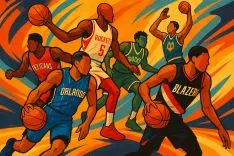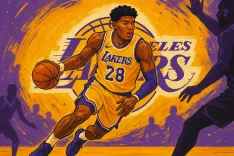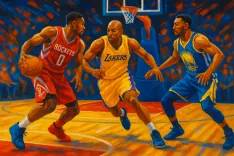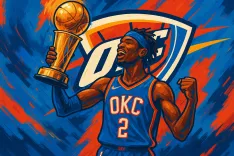NBA Trade Deadline Insights: Team Strategies and Player Situations
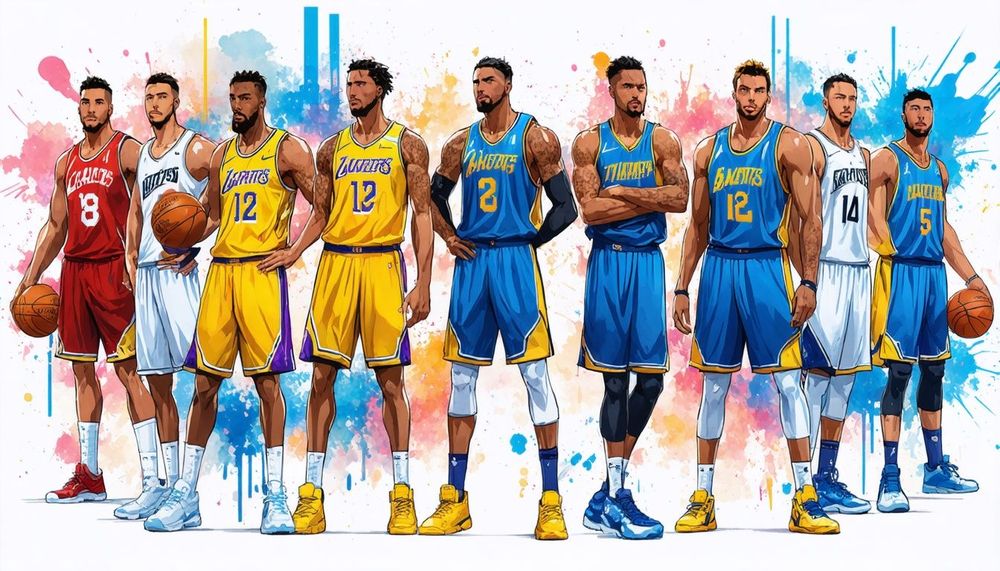
The NBA trade deadline typically evokes a sense of urgency among teams, representing the last opportunity to address weaknesses prior to the stretch run. A failure to secure necessary assistance could leave teams relying on their current rosters, effectively meaning they must make do with what they have. While not every team is looking for upgrades, those intending to offload assets or reorganize financials may have to postpone such actions until summer, potentially incurring tax penalties for their inaction. As the deadline of February 6 draws near, urgency, deception, and rivalry intensify, leading any devoted fan to feel a sense of unease.
The Atlanta Hawks are currently hovering just below a top-six position in the Eastern Conference, but a rise from the Philadelphia 76ers could jeopardize their status in the Play-In round. Compounding their challenges, Jalen Johnson has sustained a season-ending shoulder injury. This middling status complicates the clarity around the ideal deadline strategy for Atlanta. The organization must navigate complex decisions regarding Clint Capela and Larry Nance Jr.'s expiring contracts while considering the implications of the San Antonio Spurs controlling the Hawks' future first-round picks. Options include potentially trading for a high-salary player with financial commitments extending into subsequent seasons or allowing those contracts to expire, a scenario increasingly favored by many teams under the new CBA structure. Atlanta must proceed cautiously to avoid settling into mediocrity.
The Boston Celtics have found themselves struggling with inconsistency, leading to speculation that they may need to make a move at the trade deadline. The team's positioning is hindered by the second apron, restricting their ability to aggregate players for trades while also lacking mid-tier salaries that could facilitate movements. The most frequently discussed potential trade involves offloading Jaden Springer's contract, which could lead to significant salary savings if conducted without receiving any money in return. If the Celtics now find themselves in need of additional depth, particularly in the form of a backup wing or another versatile forward, they face a challenging market in finding fitting options.
The Brooklyn Nets are not currently in a position to orchestrate a swift one-season turnaround, nor do they need to. After regaining the control of their 2025 and 2026 first-round picks from the Houston Rockets, they are in a position to approach this year’s trade deadline with patience if the offers for players like Cam Johnson do not meet their expectations. Nonetheless, there is an inclination for the Nets to consider moving Johnson while his value is peaking, as the team's ongoing rebuild timeline may demand productive trades. However, Johnson’s potential $4.5 million in unlikely bonuses could complicate matters, impacting the cap implications for any acquiring team. The Nets may find that trade offers do not meet their anticipated level.
The Charlotte Hornets have adopted a long-term approach to team building, securing two future first-round picks along with eleven second-round selections over the past year. A prime objective at the trade deadline would be to move Miles Bridges in exchange for a less favorable but comparably large contract, ideally gaining additional draft assets in the process. However, this strategy faces obstacles if teams are less inclined to part with draft picks in exchange for negative contracts. For instance, discussions involving Khris Middleton moving to the Hornets alongside a 2031 first-round pick could provide Charlotte with an opportunity, yet the Bucks might hesitate to part with any future pick given their hopes for an upgrade. Charlotte requires trade partners who are willing to pursue deals, but potential partners may not be readily available.
For Chicago Bulls fans, anxiety is palpable as they’ve endured several seasons characterized by underwhelming play lacking any indication of a clear direction from management. The time may have come for the Bulls to move on from Zach LaVine and Nikola Vučević if the returns reflect even marginal improvement. However, the organization has historically struggled making progressive decisions regarding future orientation. Chicago should also contemplate the trade status of Coby White, Ayo Dosunmu, and Lonzo Ball—trading the first two makes sense due to their legitimate value, while exploring options for Ball could be pertinent as he approaches free agency. With previous hesitation in initiating their rebuild, Chicago fans are justified in hoping this trade deadline catalyzes a much-needed shift in direction.
The Cleveland Cavaliers face the challenge of trimming $1.7 million necessary to fall below the luxury tax threshold. One straightforward move could involve trading Tristan Thompson without taking back any salary. However, if Cleveland values Thompson's experience and presence, consideration of more complex moves may be needed. The players earning above his current salary of $2 million are integral to their plans for both immediate championship contention and long-term success. While avoiding luxury tax implications may not take precedence for a team aiming for playoff success, it remains a motivating factor.
In a surprising development, the Dallas Mavericks traded Luka Dončić on a recent Saturday night, a move that has astonished many around the league. Various reports have cited conditioning concerns regarding Dončić as a contributing factor to the trade, raising speculation about whether he will maintain the elite level of performance he previously exhibited with the Mavericks. The transaction involved acquiring Anthony Davis, who, while a future Hall of Famer, is at risk of injury issues himself. Fans are left to contemplate the impact of the transition for both franchises, particularly with the backdrop of Dončić’s promising young career.
Jamal Murray's performance earlier this season had raised concerns, but recently, he has shown marked improvement, averaging 22.0 points and 6.7 assists, shooting at an impressive rate. This resurgence coincides with the Denver Nuggets regaining their competitive edge within the Western Conference. If Murray maintains this level of performance throughout the remainder of the season and playoffs, the urgency for the Nuggets to make a trade may lessen. However, Denver is currently faced with challenges of limited draft picks and movable salaries, placing added pressure on their decision-making as trade deadline approaches.
Predominantly perceived as rebuilding, the Detroit Pistons seem to have found themselves unexpectedly in contention for a top-four seed in the Eastern Conference. Under the leadership of first-time All-Star Cade Cunningham, the Pistons are grappling with the choice of using their considerable cap space to facilitate trades that could enable future rebuilding initiatives. The Pistons are faced with the significant decision of allowing current momentum to alter their strategic approach—or remaining committed to their long-term vision by acting as facilitators in external trades. The franchise is urged to remain flexible, ensuring they seize opportunities for advancement while not veering away from their bigger picture.
The Golden State Warriors find themselves in a situation where trading away young talents like Jonathan Kuminga or established players like Andrew Wiggins may not be justifiable, particularly to pursue available upgrades at the trade deadline. Despite the fervor among fans and pundits to push for a significant acquisition that would elevate the team's status, the reality remains that their current precarious position does not warrant a drastic win-now move. While the goal remains to provide Stephen Curry with a viable supporting cast during his prime, the tendency might be to resist making hasty decisions.
The Houston Rockets are navigating a precarious situation ahead of the trade deadline, grappling with concerns about their commitment to remaining stationary possibly jeopardizing opportunities for transformative acquisitions. De'Aaron Fox represents a potential target among others that could reshape the team's prospects. Nevertheless, allowing their current roster to develop without new outside influences seems to align with their long-term objectives, particularly given their favorable position in the Western Conference standings.
Myles Turner’s impending unrestricted free agency ties significantly into the Indiana Pacers' looming decisions. Turner's vital role within the team's schema raises the stakes regarding the potential for either a trade that could leave them worse off or the risk of losing him for nothing if he departs in free agency. Ideally, holding onto Turner and extending a lucrative contract might be the ultimate course of action for the Pacers, who must weigh this against the possibility of exploring less beneficial deals should they opt to part ways with him leading into summer negotiations.
The LA Clippers have defied expectations as they approach the trade deadline, finding themselves in a competitive position for home-court advantage in the Western Conference despite concerns surrounding key player injuries. With a relatively limited inventory of draft picks and restricted financial flexibility, the Clippers must navigate potential trades involving expiring contracts and young assets judiciously. The organization faces a challenging dilemma—whether to relinquish valuable draft picks in pursuit of immediate upgrades, especially given their surprising performance thus far.
The Los Angeles Lakers have made headlines by exchanging Anthony Davis and a first-round pick for Luka Dončić, a transaction that raises eyebrows due to its perceived low return for one of the league's brightest stars. While speculations surrounding Dončić’s conditioning persist, questions arise about the trade's implications for both franchises. Anticipation builds regarding how this pivotal move will affect the Lakers' trajectory in upcoming seasons as they leverage their acquisition to compete at a high level.
Rookie Jaylen Wells has demonstrated impressive defensive capabilities within the Memphis Grizzlies' ranks, yet concerns linger about his long-term viability in that role amid the upcoming trade deadline. Though he has successfully handled tough defensive assignments, projecting his suitability for guarding elite wings poses a challenge. Balancing his on-court contributions with the need for adaptations within Memphis' defensive strategies could prompt the franchise to explore targeted acquisitions capable of enhancing their frontline depth for approaching playoff competition.
Heading into the trade deadline, the Miami Heat find themselves facing various uncertainties. Should the team consider moving star player Jimmy Butler, the risks associated with accepting lesser returns may looom large, compounded by the awkwardness of Butler potentially remaining without a trade. Additionally, implications arise from retaining a protected first-round pick owed to the Oklahoma City Thunder in the event of missing the playoffs, as the consequences of that scenario could prove especially tenuous for a franchise that prides itself on maintaining competitiveness.
The Milwaukee Bucks are operating within strict salary constraints, notably limiting their ability to pursue meaningful trades or upgrades. The team faces challenges moving forward as they must prioritize maintaining financial flexibility while considerately assessing any available players that align within their plans. The situation leaves Milwaukee grappling with few choices, particularly in light of their constraints around future draft picks and the pressing need to maintain their successful trajectory within the competitive Eastern Conference landscape.
The Minnesota Timberwolves' earlier trade moves, particularly the Justin Edwards exchange involving Karl-Anthony Towns, have raised concerns regarding their strategic foresight. The assessment suggests the organization may have prioritized financial relief over competitive enhancements. As they currently stand in the midst of salary cap constraints while struggling to position themselves effectively within the league standings, there remains heightened concern about disappointing their fanbase with further moves that might perpetuate existing issues of instability.
As the New Orleans Pelicans hold onto Brandon Ingram amidst trade discussions, uncertainty looms regarding future directions for the organization. Despite the lack of market interest in Ingram, remaining on the roster beyond the deadline appears to be a foreboding outcome. With the potential for various outcomes looming ahead, including possible sign-and-trade negotiations in the summer, the franchise's overarching goal should be to swiftly resolve lingering uncertainties surrounding Ingram and carve a productive path forward.
The New York Knicks' attempts to effectuate trades before the deadline may largely rest upon the status of Mitchell Robinson, whose injury has exacerbated challenges in generating depth within their rotation. Selling potential suitors on Robinson's value while sidelined becomes increasingly difficult, complicating any meaningful trade transactions. If the Knicks cannot find a suitable trade for Robinson, potential disappointment looms as competitors around the East strengthen their rosters while they remain stagnant.
The Oklahoma City Thunder are currently positioned to achieve impressive league standings, making a case for their indecision to make significant changes as the trade deadline approaches. Feedback from continued success provides a strong basis for maintaining current lineups; however, concerns arise regarding critical areas that could require enhancements, particularly in regard to depth when opposing strong competition. The Thunder must balance their aspirations while avoiding regrettable errors should their current strategy prove inadequate for playoff performance.
As one of the least efficient shooting teams historically, the Orlando Magic's upcoming trade deadline appears vital for addressing fundamental issues within their offense. Despite experiencing a series of injuries that have affected team performance, potential opportunities exist for the Magic to enhance their roster significantly. Positioning themselves for crucial outcomes hinges on making astute trades that could markedly improve their playoff positioning moving forward.
The Philadelphia 76ers find themselves at a crossroads influenced by recent player injuries and potential philosophical shifts surrounding their threshold for success. Given their precarious position within playoff standings, deliberating and acting decisively at the trade deadline becomes essential to maintaining competitiveness. Awareness regarding operational constraints will be key in determining the franchise's approach, specifically amid changing dynamics and resoundingly competitive playoff environments.
The Phoenix Suns grapple with challenging trade dynamics following their earlier acquisition of Bradley Beal, issuing warning signals that inhibit their flexibility for meaningful trades. With no assurances regarding Beal's willingness to facilitate roster changes, the Suns' previous decision-making processes leave them questioning their trajectory amidst an emerging market with potential pitfalls.
As the Portland Trail Blazers approach the trade deadline, circumstances prompt reconsideration of their approach amid rising challenges throughout the league. Potential attempts to reduce salary may necessitate unloading contracts that could create further complications if not managed correctly. With no clear anchor for future success and a pressing need to bolster their roster, the Blazers must tread carefully to avoid exacerbating their already precarious position.
The Sacramento Kings face significant pressure surrounding De'Aaron Fox's reported desire to seek an exit, casting shadows over a past seemingly marked by fleeting improvement juxtaposed with persistent issues. It raises substantial questions about the franchise’s ability to bolster their core while navigating potential trades that could set them back. Long-standing ownership and management challenges threaten to undermine the incremental gains the Kings have claimed.
